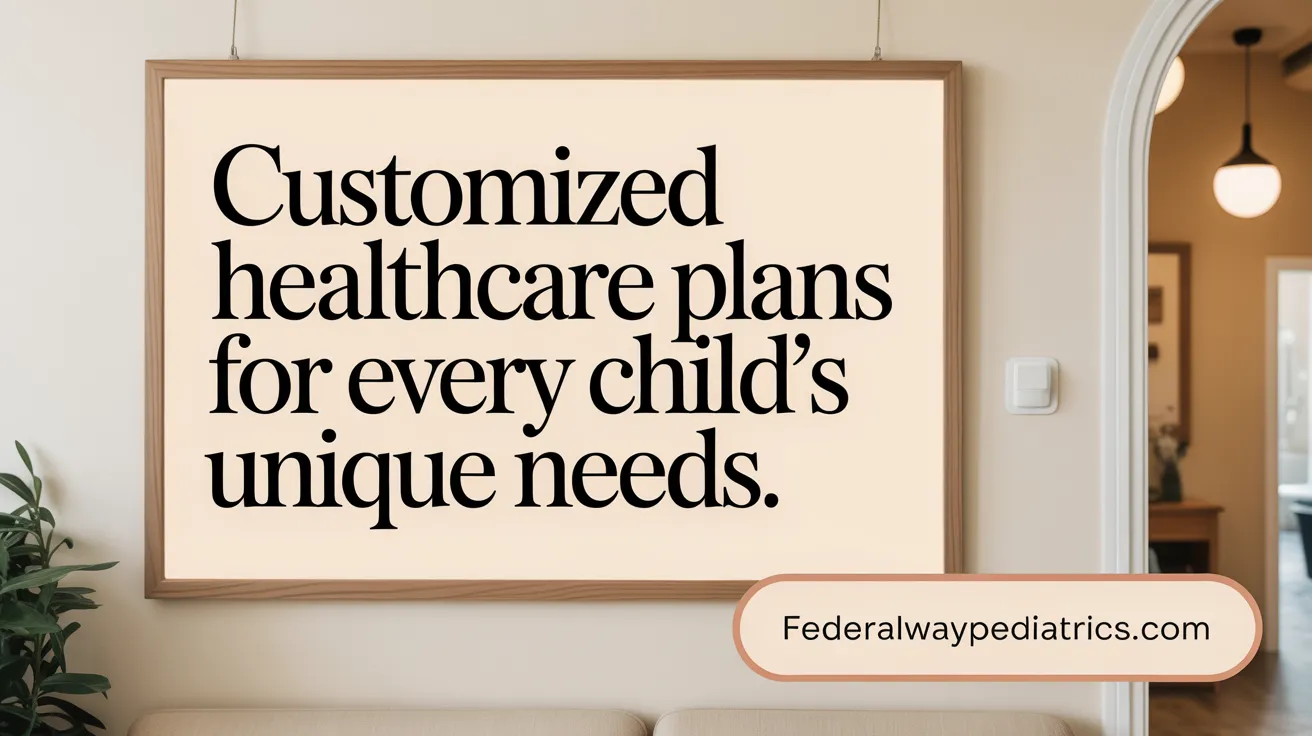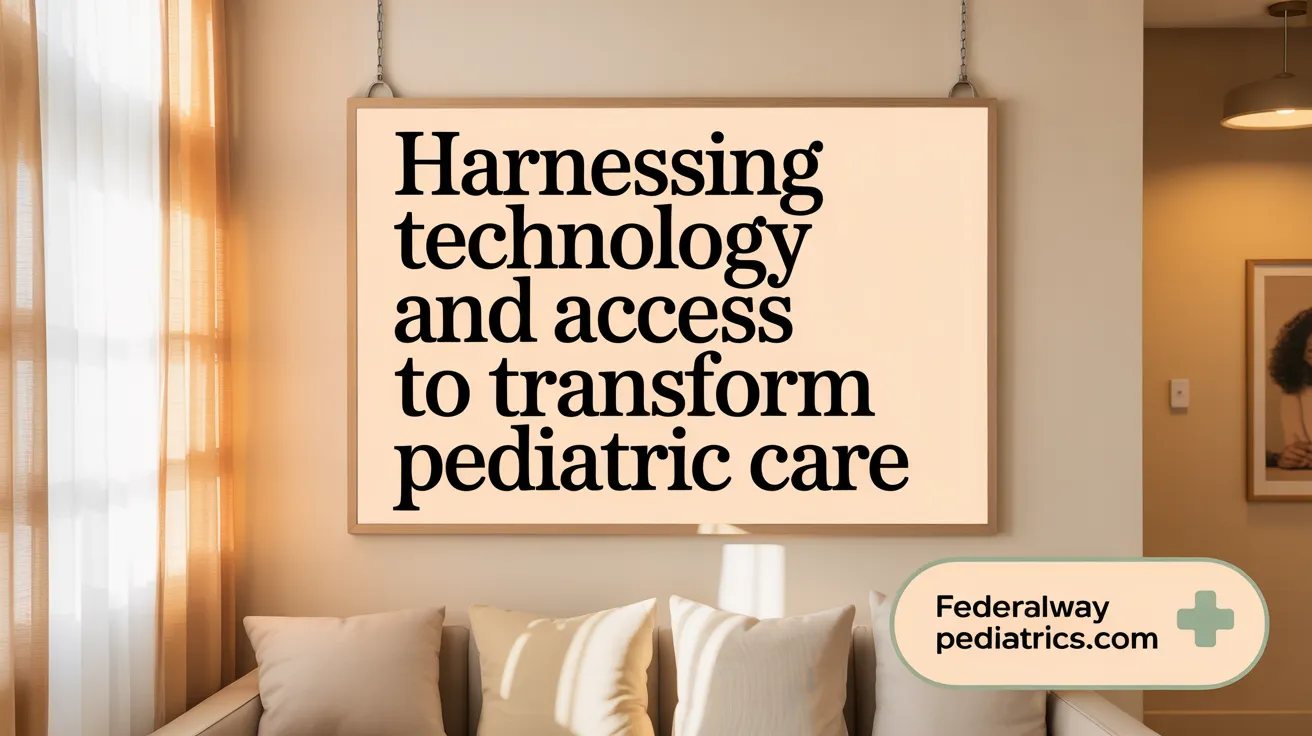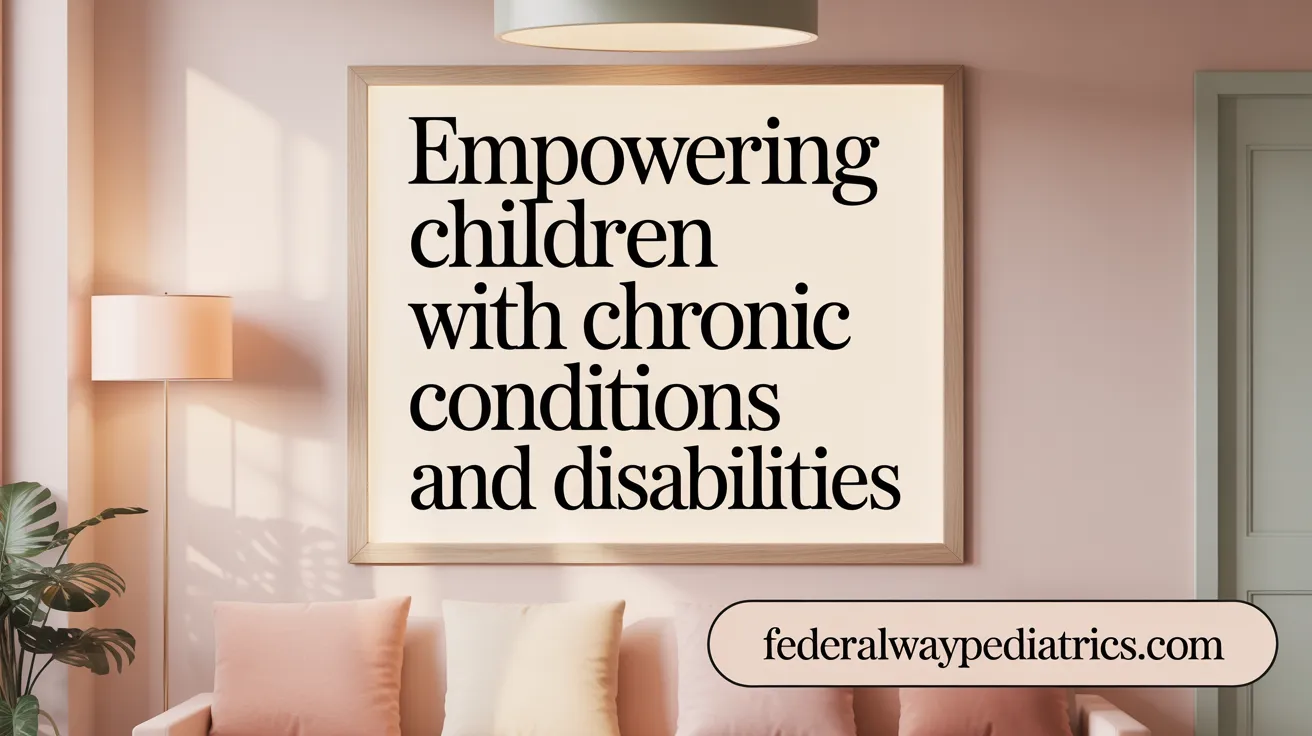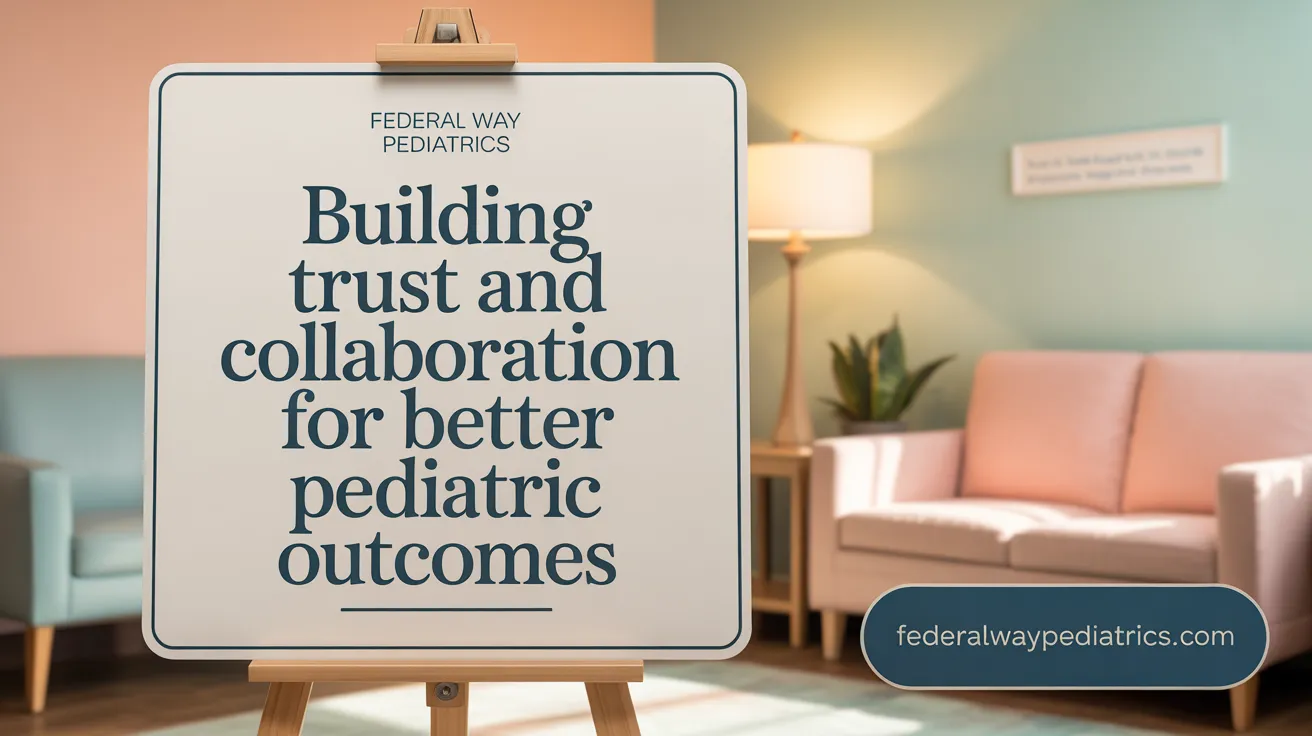The Rise of Personalized Approaches in Pediatric Care
Definition and Overview of Personalized Pediatric Healthcare
Personalized pediatric care is a patient-centered approach treating each child as a unique individual. It involves creating health plans tailored to a child's specific medical history, growth trajectory, developmental milestones, and lifestyle factors. This approach combines wellness strategies, customized treatments, and individualized developmental assessments to address physical, emotional, and mental health comprehensively.
Importance of Individualized Care for Children
Individualized care recognizes that children vary widely in health needs and responses to treatment. Tailoring care enhances early detection of potential health issues by continuously monitoring a child's unique health history, enabling timely interventions. It improves communication and trust between healthcare providers, children, and families, which supports better health outcomes. For children with chronic illnesses, personalized management plans consider medication sensitivities, dietary requirements, and emotional support, fostering holistic well-being.
Foundational Principles of Personalized Healthcare Plans
Personalized pediatric healthcare plans emphasize collaborative decision-making involving pediatricians, parents, and the child. These plans are comprehensive, addressing wellness, preventive care (including vaccinations and screenings), chronic condition management, and mental health support. Leveraging technological advances such as telemedicine and genetic testing further refines care precision. Such plans also promote family-centered care, encouraging parents to actively participate and support ongoing health monitoring and interventions tailored to their child's evolving needs.
Tailoring Healthcare to Each Child’s Unique Needs

What is personalized pediatric care and how does it benefit children?
Personalized pediatric care is a patient-centered pediatric approach that views each child as an individual, recognizing their unique health needs, growth trajectories, and developmental milestones. Rather than applying a uniform healthcare plan, this method crafts customized treatment strategies and tailored wellness plans tailored specifically to the child's medical history and lifestyle.
Individualized assessment of growth, development, and health history
This care model prioritizes comprehensive assessments that monitor a child's growth patterns, cognitive and motor development, and overall health history. Individualized developmental assessments and regular developmental screenings help catch early signs of issues such as nutritional deficiencies or behavioral challenges. Tracking personal medical history improves early detection of health issues in children, enabling timely and targeted interventions.
Customized wellness and vaccination plans
Personalized pediatric care includes tailored vaccination plans for children and wellness plans that outline preventive measures such as immunizations and screenings according to the child’s unique risk factors. Immunization schedules and preventive screenings are adjusted based on individual circumstances, family history, and environment.
Management of chronic conditions with personalized strategies
For children with chronic illnesses like asthma, diabetes, or allergies, personalized management for chronic conditions in children addresses medication sensitivities, dietary needs, and emotional support systems. This approach ensures treatment protocols consider each child’s requirements, improving management and quality of life.
Involvement of families in collaborative decision-making
A foundational element of personalized pediatric care is active collaboration among pediatricians, parents, and children. Through trust and communication with pediatricians and collaborative decision-making in pediatrics, families are empowered to participate actively in healthcare decisions, strengthening adherence to care plans and fostering children's positive healthcare experiences.
This individualized focus helps create a supportive environment where children receive optimal care adapted to their evolving needs, ultimately enhancing their health outcomes and well-being.
Enhancing Emotional and Developmental Well-being through Personalized Care

How does personalized care support a child's mental and emotional health?
Personalized pediatric care fosters mental and emotional well-being by tailoring interventions to each child's unique behavioral and developmental needs. It addresses anxiety and other emotional challenges through family-centered strategies, promoting a positive outlook on healthcare. This individualized attention helps children feel understood and supported, reducing stress associated with medical experiences. For more on emotional and mental health in pediatric care, see Emotional and mental health in pediatric care.
Addressing developmental milestones and behavioral needs
By monitoring key developmental milestones like speech, motor skills, and cognition, personalized care ensures early identification of any delays or challenges. Pediatricians work collaboratively with parents to create custom plans that support behavioral health and foster timely interventions. This proactive approach aids in holistic development and enhances learning and social skills. Learn more about Monitoring developmental milestones in children and Monitoring holistic child development.
Reducing anxiety and supporting psychosocial development
Personalized care programs focus on reducing anxiety through consistent doctor-patient relationship in pediatric care, clear communication, and emotional support tailored to the child’s temperament. These factors collectively support healthier psychosocial growth, enabling children to navigate healthcare experiences with confidence and resilience. See also Trust and communication with pediatricians.
Integrative and holistic approaches in pediatric care
Integrative pediatricians combine conventional medicine with complementary therapies, providing holistic care that addresses physical, emotional, and social health. Through personalized treatment plans including nutrition, lifestyle guidance, and behavioral interventions, they improve overall well-being. This holistic focus benefits children with chronic conditions by supporting sustained emotional and developmental health alongside medical treatments. For details, visit Benefits of Choosing an Integrative Pediatrician.
Leveraging Technology and Accessibility to Improve Personalized Care

What technological and accessibility advancements enhance personalized pediatric care?
Technological innovations have revolutionized personalized pediatric care by enabling more precise and continuous health monitoring. Genetic testing in pediatrics provides insights into individual risk factors, allowing pediatricians to tailor preventive and treatment plans effectively. telemedicine in pediatric healthcare and virtual clinic consultations offer families convenient access to healthcare, overcoming challenges like transportation and scheduling conflicts.
Wearable health devices contribute to accessible, real-time health data collection, improving chronic condition management and early intervention. Electronic health records (EHRs) ensure that comprehensive patient information is readily available, supporting coordinated and personalized care across providers.
How do telehealth and virtual consultations improve convenience for families?
Telemedicine in pediatric healthcare platforms enable families to consult pediatricians remotely, reducing the stress of in-person visits and providing quick access to care for acute or ongoing health needs. Virtual clinics offer services that span general pediatrics and subspecialties, ensuring personalized pediatric care is accessible regardless of location.
What barriers to healthcare access are addressed to promote equity?
Common barriers such as transportation difficulties, financial hardships, language differences, and scheduling limitations are mitigated through innovative solutions including extended clinic hours, multilingual services, and telemedicine. These approaches foster Equity in child health outcomes by ensuring all children receive timely and individualized care regardless of socioeconomic status.
How do community outreach and policy support ensure equitable pediatric healthcare?
Community outreach programs like mobile clinics and school health partnerships extend care to underserved populations. Policy initiatives support accessibility by promoting insurance coverage, telehealth reimbursement, and incentives for healthcare providers in rural or underserved areas. These systemic efforts, combined with technological tools, build trust and communication with pediatricians and continuity in healthcare relationships while enhancing preventive and chronic care management for children.
Together, these technological and accessibility advancements are transforming personalized pediatric care, ensuring holistic and equitable health outcomes for all children.
Personalized Care for Children with Chronic Conditions and Disabilities

How do personalized pediatric healthcare plans support children with chronic conditions and disabilities?
Personalized pediatric healthcare plans play a crucial role in managing chronic illnesses and disabilities in children. These plans deliver individualized management strategies that address the unique needs of each child, considering factors like medication sensitivities, dietary requirements, and emotional well-being.
Customized management plans for chronic illnesses like asthma and diabetes
Children with chronic conditions such as asthma and diabetes benefit from care plans that are tailored specifically for their health profiles. These plans include personalized medication schedules, nutrition guidance, and emotional support to address the challenges associated with their conditions. Such customization helps to prevent complications and enhances the child’s overall quality of life.
Tailored pediatric disability care plans involving multidisciplinary teams
For children with disabilities—including physical, intellectual, sensory, and neurodevelopmental disorders—customized care plans are essential. These plans emphasize a team approach, involving pediatricians, therapists, educators, social workers, and family members. Regular communication and collaboration ensure that interventions are adapted as the child grows, promoting continuous support that addresses physical, cognitive, and social needs.
Family-centered approaches promoting independence and self-advocacy
An important goal of these personalized plans is to empower children with chronic conditions or disabilities. Family-centered care encourages active collaboration with parents and caregivers, fostering independence and teaching self-advocacy skills tailored to the child's abilities and aspirations. This approach enhances emotional well-being and helps children gain confidence and autonomy.
Coordination of specialized care and ongoing monitoring
Effective personalized care requires coordination among specialists and continuous health monitoring. This ensures prompt adjustments to treatment and developmental goals based on the child’s progress. Multidisciplinary collaboration ensures that every aspect of a child’s health is managed holistically, supporting long-term wellness and improved developmental outcomes.
By integrating these customized, collaborative, and family-focused strategies, personalized pediatric care supports children with chronic conditions and disabilities in living healthier, more fulfilled lives.
Building Strong Doctor-Patient-Family Relationships for Successful Pediatric Care

Why is the doctor-patient-family relationship crucial in personalized pediatric care?
A strong doctor-patient relationship in pediatric care is the foundation of successful personalized pediatric care. Trust and open communication allow pediatricians to gain a deeper understanding of each child’s unique medical history, lifestyle, and emotional needs. This familiarity supports early detection of health issues in children and fosters a collaborative decision-making in pediatrics environment where parents and caregivers actively participate in care decisions.
Benefits of continuity through models like direct primary care
Care models such as Pediatric Direct Primary Care benefits prioritize long-term relationships between families and their pediatricians. These models offer longer, unhurried visits, same-day or next-day pediatric appointments, and direct access to the doctor via phone, text, or email. Such accessibility enhances timely interventions and supports ongoing monitoring developmental milestones in children and personalized management for chronic conditions in children.
Role of pediatricians in education and comprehensive support
Pediatricians do more than treat illnesses; they serve as educators and advocates for children’s overall well-being. Through personalized pediatric care plans, pediatricians guide families on immunizations, nutrition, mental health, and lifestyle adjustments. This comprehensive pediatric care approach empowers parents and helps children develop self-advocacy skills, ultimately promoting healthier growth and development.
Impact of relationship-focused care on health outcomes and satisfaction
Research consistently shows that children receiving relationship-centered pediatric care experience better health outcomes and greater satisfaction. When families trust their pediatrician and feel heard, adherence to treatment plans improves. Children benefit from a healthcare environment that reduces anxiety and encourages open dialogue about physical and emotional health through mental and emotional support in pediatric care.
Together, these elements of strong doctor-patient-family relationships create a nurturing foundation for lifelong health and wellness in children.
